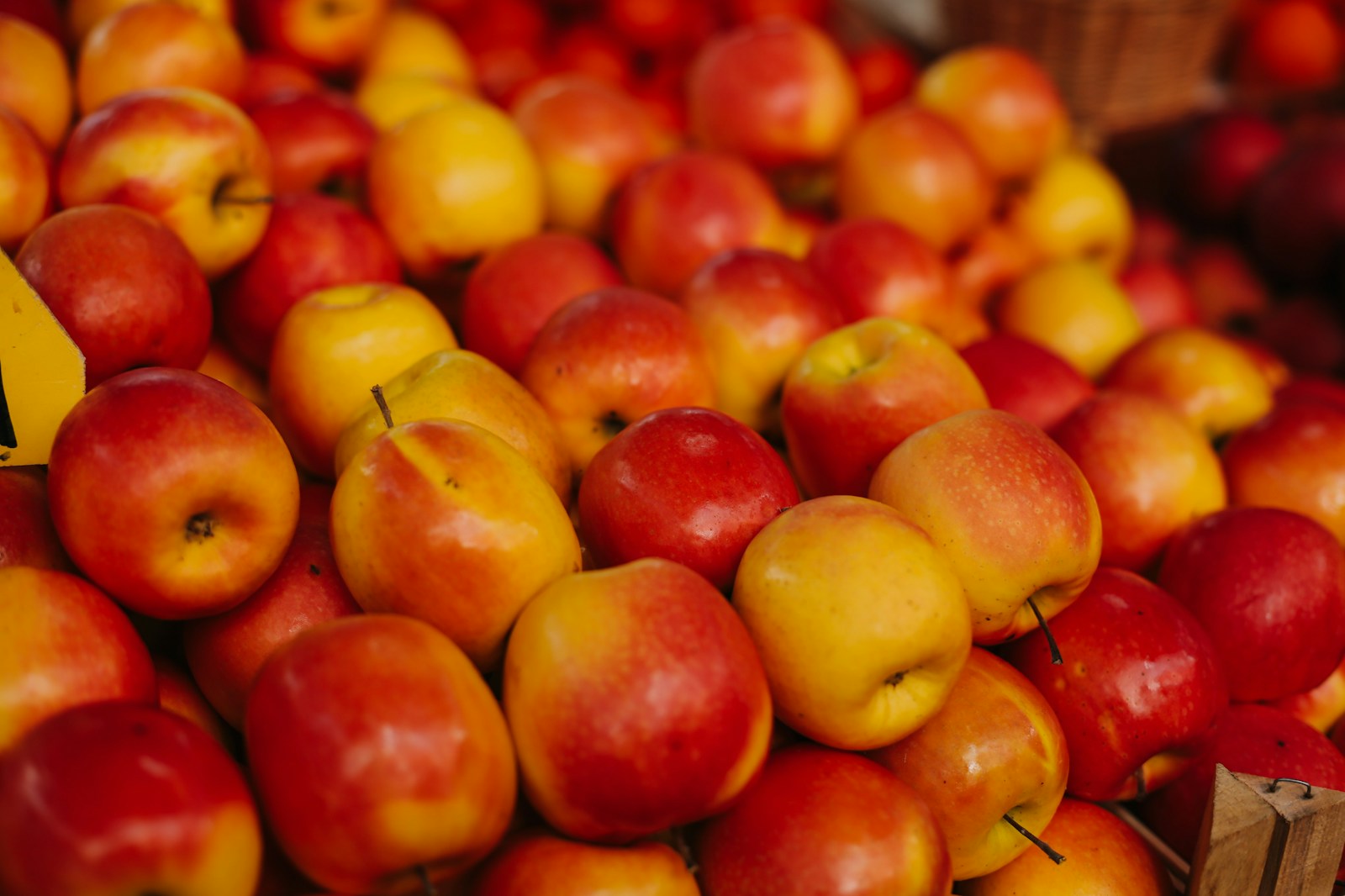
manzana

apple
'Manzana' is the Spanish word for 'apple'. It's a significant term in Spanish, as apples constitute a common and popular fruit in many Spanish-speaking countries.
Example sentences using: manzana
La manzana era el premio en la película.

The apple was the prize in the movie.
This phrase shows how to use 'manzana' (apple) as a noun within a context related to movies. It also demonstrates the use of past tense in Spanish.
En la película, comió una manzana roja.

In the movie, he ate a red apple.
This phrase is a basic use of 'manzana' (apple) within a sentence. It introduces the concept of color adjectives, in this case 'roja' for red.
Ella lanzó la manzana en la escena final de la película.

She threw the apple in the final scene of the movie.
In this sentence, 'manzana' (apple) is used to show an action performed by a character in a movie. This introduces the past tense verb 'lanzó', meaning 'threw'.
¿Viste la película sobre la manzana gigante?

Did you see the movie about the giant apple?
This question uses 'manzana' while asking about viewing a movie. It introduces the concept of adjectives modifying a noun, 'gigante' for 'giant'.
El protagonista de la película es una manzana parlante.

The protagonist of the movie is a talking apple.
This phrase introduces 'manzana' in more advanced context in storytelling. It uses the adjective 'parlante', meaning 'talking', to describe the apple.
La manzana simboliza la tentación en muchas películas.

The apple symbolizes temptation in many movies.
This sentence uses 'manzana' in a metaphorical context, symbolizing temptation. This concept is often found in various films.
En su nueva película, lleva siempre una manzana.

In his new movie, he always carries an apple.
This sentence uses 'manzana' to describe a character's habit in a movie, introducing the present tense 'lleva', meaning 'carries'.
La película se llama 'La Manzana Dorada'.

The movie is called 'The Golden Apple'.
In this phrase, 'manzana' is used as part of a movie title. It also introduces the adjective 'dorada', which translates as 'golden'.
La manzana era mágica en esa película de fantasía.

The apple was magical in that fantasy movie.
Here, 'manzana' is used to describe a magical object within a fantasy film. It also introduces the adjective 'mágica', which means 'magical'.
El director muestra una manzana en cada escena.

The director shows an apple in every scene.
This sentence uses 'manzana' to highlight a film director's unique stylistic choice. It helps in learning usage of present tense, 'muestra' which means 'shows'.
Como una manzana al día.

I eat an apple a day.
This sentence describes a daily habit. In Spanish, 'una' is used before the noun (manzana) to indicate 'one' or 'a'.
La manzana está en la mesa.

The apple is on the table.
This sentence describes the location of an object. In Spanish, 'en' is used for 'on'.
Juan tiene una manzana.

Juan has an apple.
This phrase talks about possession, using the verb 'tiene' which means 'has' in Spanish.
Dame esa manzana, por favor.

Give me that apple, please.
This is an imperative sentence. In Spanish, the verb comes before the pronoun, unlike English.
La manzana es rica.

The apple is tasty.
The adjective 'rica' describes the apple in terms of taste. This term is often used to express that food is delicious in Spanish.
Esa manzana es grande.

That apple is big.
This phrase is using 'esa' to indicate 'that'. In Spanish, we use 'esa' instead of 'esta' when the object is far from the speaker.
Tomé el jugo de manzana.

I drank apple juice.
In this sentence, juice becomes 'jugo de manzana', where 'de' acts as 'of' indicating that the juice is made of apple.
Yo corto la manzana.

I cut the apple.
This is a present tense sentence. In Spanish, the subject can often be omitted, but it is included here for emphasis.
Manzana es mi fruta favorita.

Apple is my favorite fruit.
This sentence describes a preference. It uses 'mi' before 'fruta favorita' to say 'my favorite fruit'.